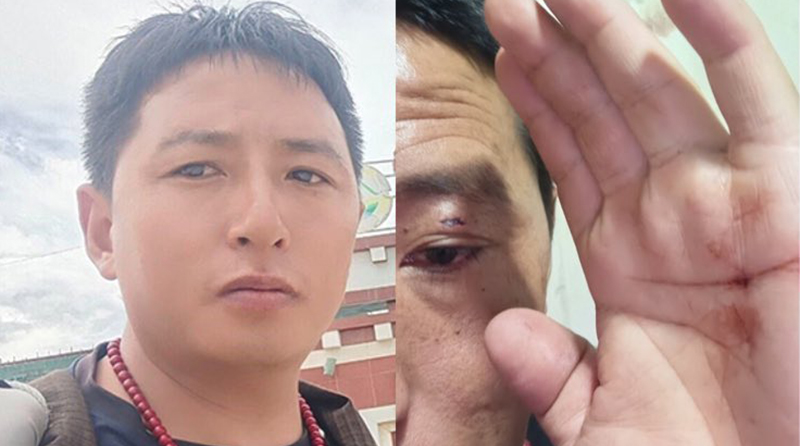Dharamshala — Former Tibetan political prisoner and Tibetan language advocate, Tashi Wangchuk, was detained and beaten by Chinese authorities on October 17, 2023, after he posted a video online of Chinese government officials refusing to register a license for his small car wash business.
According to a report of Tibet Watch, the Former Tibetan political prisoner and Tibetan language rights activist Tashi Wangchuk was detained and beaten by Chinese police on October 17, 2023, after posting a video showing Chinese government officials refusing his application to register a business his social media app (Wechat).
Tashi Wangchuk opened a car wash shop in the city of Yushu on October 17, 2023. The local police asked him to go to the Yushu City People's Government to apply for a licence for his new business. When he went there to register, his application was refused, which he filmed and later posted as a status on his WeChat account.
Later, he was detained by the Urban Management and Law Enforcement Bureau ( 城管执法大队 ) and handed over to the Public Security Bureau ( PSB ) of Yushu City, where he was detained for three days and subjected to interrogation. The head of the Yushu PSB and the Vice-Mayor, Zhi Husai ( 冶胡赛 ), brutally beat him, and Tashi's shop was also forcibly shut down.
Tashi was told that he had committed a crime against the state by posting the video on his WeChat. "But I can't accept it because it's my right and my freedom of expression. I don't know why they [the police] are putting a black hat on my head again (i.e. falsely accusing someone of wrongdoing)."
Chinese authorities constantly monitor and harass former Tibetan political prisoners, do not allow them to move freely outside their homes or find work easily, and it is increasingly difficult for former political prisoners to earn a living.


![Tibet has a rich history as a sovereign nation until the 1950s when it was invaded by China. [Photo: File]](/images/stories/Pics-2024/March/Tibet-Nation-1940s.jpg#joomlaImage://local-images/stories/Pics-2024/March/Tibet-Nation-1940s.jpg?width=1489&height=878)


















